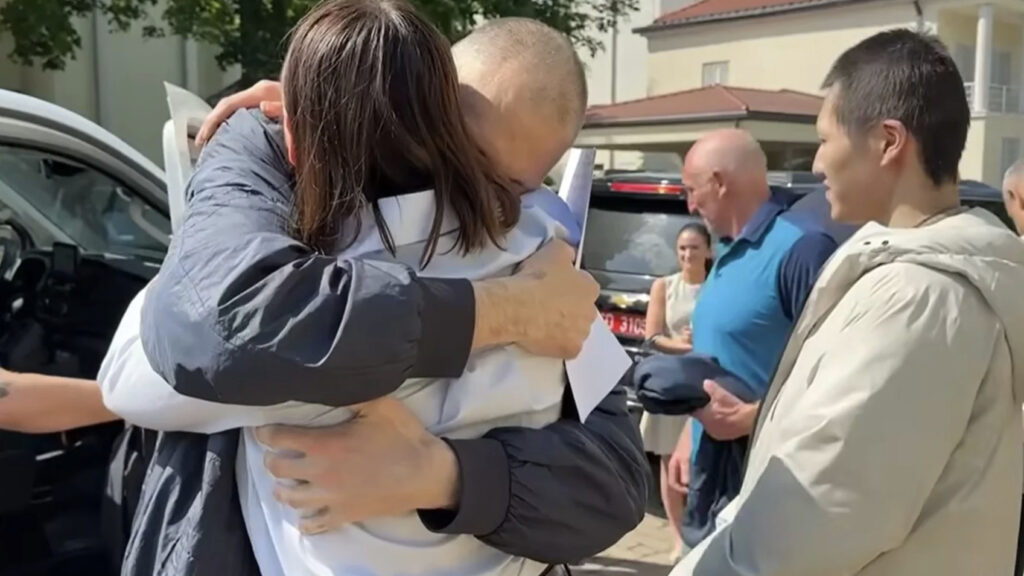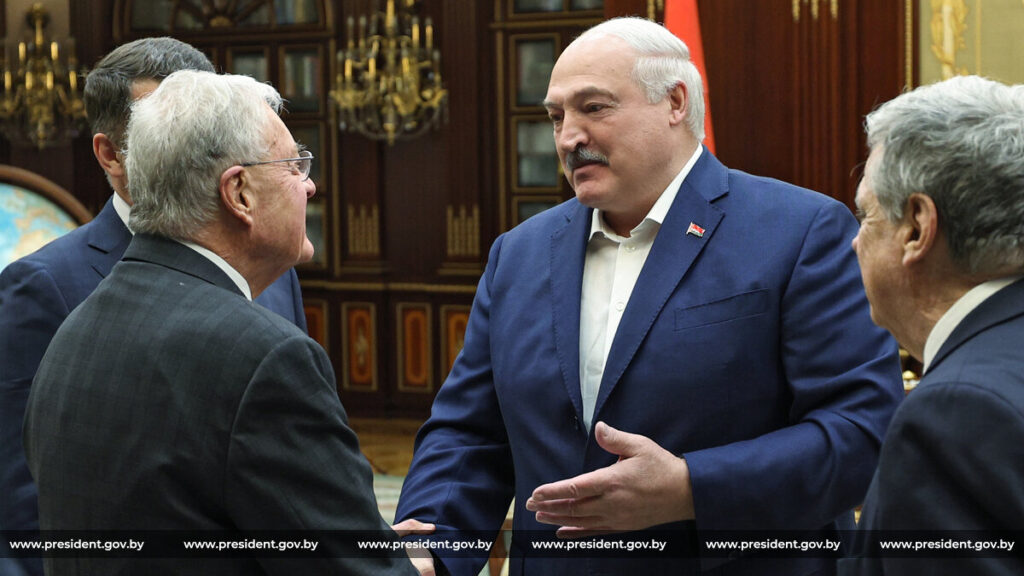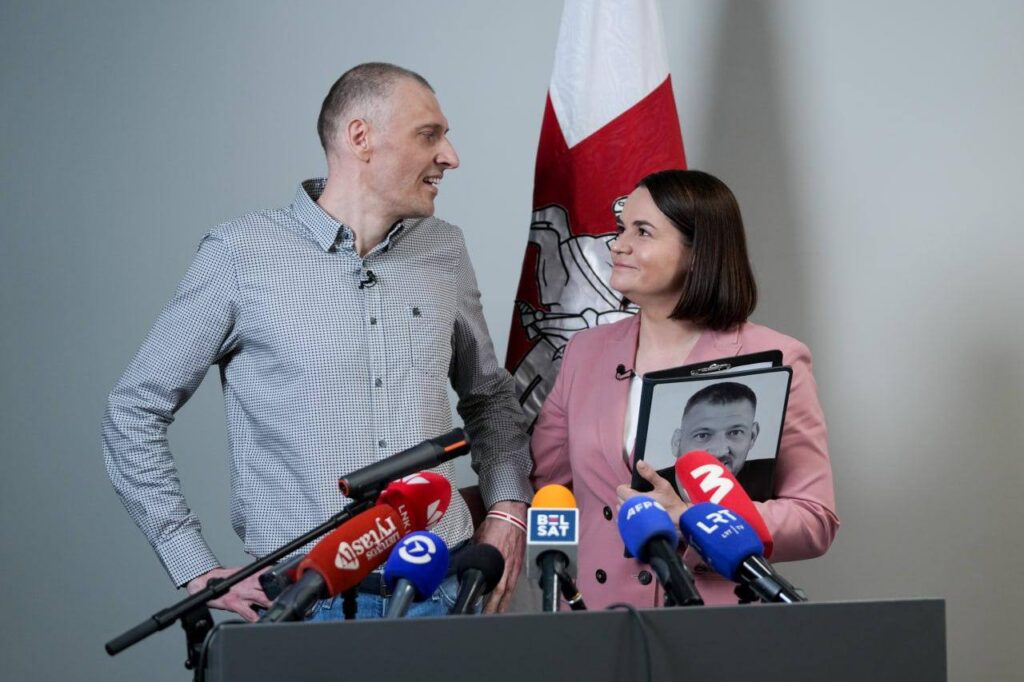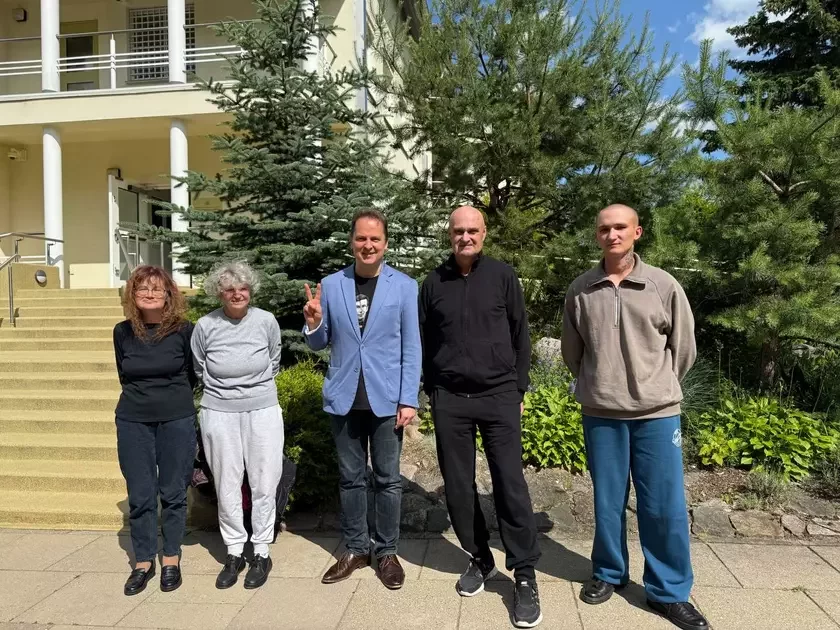On Trump’s request, Belarus releases 14 political prisoners charged for opposing government and its support for Russia’s war

Fourteen political prisoners who were held in Belarus captivity were freed following a meeting between Belarus’s authoritarian leader Alexander Lukashenko and US President Donald Trump’s special envoy Keith Kellogg.
The group included prominent opposition figures, journalists, and activists who had been imprisoned on charges ranging from organizing mass riots to extremist activities.
In 2020, Belarus was rocked by massive protests following a disputed presidential election in which longtime leader Alexander Lukashenko claimed victory amid widespread allegations of vote-rigging and repression. The opposition, led by Sviatlana Tsikhanouskaya, mobilized hundreds of thousands of Belarusians on the streets demanding democratic reforms and Lukashenko’s resignation. The authorities responded with a harsh crackdown, including mass arrests, violence against protesters, and widespread human rights abuses.
Trump administration secures release after Kellogg meets Lukashenko
The prisoner release came at the direct request of US President Donald Trump, according to Lukashenko’s spokesperson Natalia Eismont. John Cole, Kellogg’s deputy, also attributed the success to Trump’s “strong leadership.”
The breakthrough followed a six-and-a-half-hour meeting on 21 June between Lukashenko and Keith Kellogg, Trump’s special envoy for Ukraine, who became the highest-ranking American official to visit Belarus in years.

The last senior US official to visit Belarus was Secretary of State Mike Pompeo in 2020, with only lower-level diplomats traveling there since, including a February 2025 visit focused on prisoner releases.
The negotiations in Minsk covered American and European sanctions against Belarus, conflicts in Ukraine and the Middle East, and Belarus’s relations with Russia and China, according to Eismont.
Reuters had previously reported that sources described Kellogg’s trip as potentially helping to restart peace negotiations between Ukraine and Russia after they have stalled in recent weeks, though the primary focus appeared to be securing the prisoner release.
Opposition couple reunites after five-year separation
The most prominent figure among those freed was Sergei Tikhanovsky, whose release reunited him with his wife Svetlana after five years of imprisonment. The couple’s story became central to Belarus’s 2020 pro-democracy movement, which emerged from the largest anti-government protests in the country’s history.
Fourteen political prisoners held in Belarus walked free on 21 June following Trump's personal request to Lukashenko.
— Euromaidan Press (@EuromaidanPress) June 22, 2025
The breakthrough came following a six-hour meeting between Belarus leader Lukashenko and Trump's special envoy Keith Kellogg in Minsk.
The most prominent figure… pic.twitter.com/DaJWQTNRqt
The 2020 protests were triggered by a presidential election in which Lukashenko sought a sixth term. After official results declared Lukashenko the winner, the opposition and much of the public rejected the results as falsified, with Svetlana Tikhanovskaya claiming she had actually won 60-70% of the vote. The protests were met with violent crackdowns, mass arrests, torture, and documented abuse by human rights organizations.
Sergei Tikhanovsky, a YouTuber and video blogger, had become well-known for criticizing Lukashenko’s regime through grassroots activism. In May 2020, he announced his intention to run for president but was arrested days later in what was widely viewed as a politically motivated move to prevent his candidacy.
When authorities barred Sergei from running, Svetlana decided to campaign in his place. Despite Lukashenko’s dismissive remarks about a woman leading the country, she quickly became the main opposition candidate and symbol of the pro-democracy movement. Following the contested election and amid threats to her safety, she was forced into exile in Lithuania but continued leading the opposition from abroad.
Sergei was subsequently convicted on charges including organizing mass riots and sentenced to 18 years in a strict-regime colony.
Lukashenko’s spokesperson said his release was decided “for humanitarian reasons, to reunite the family,” though she described him as among those “convicted of extremist and terrorist activities.”

“Sergei is free. Next to me and the children. What our family has dreamed of for these 5 years and what we have all worked toward since his arrest has happened. Sergei’s release is a step toward the liberation of all political prisoners and all of Belarus,” Tikhanovskaya said.
Other released prisoners include journalists and activists, most — foreign nationals
Among 14 freed prisoners, six were Belarusians and others were foreign nationals — two Japanese citizens, three Polish citizens, two Latvian citizens, and citizens of Estonia, Sweden, and the US. The prisoners were met by Tikhanovskaya and her advisor Franak Viachorka, in Lithuania, an EU and NATO country located close to Belarus.

One of the released was Igor Korney, a journalist for the Belarusian broadcasting service of Radio Free Europe, imprisoned for his independent journalism work criticizing the government.
An Italian teacher Natalia Dulina was detained in 2022 for her participation in protests against the regime and set free in 2025.
According to Nasha Niva publication, other freed individuals include Belarusian activist Akihiro Gayevsky-Hanada, a Swedish-Belarusian citizen Galina Krasnyanskaya charged for supporting Ukraine in its fight against Russia, and Kirill Balakhonov, who was convicted in the “Union of Belarusian National Shield” case.
In 2022, Belarusian security forces arrested five young men for forming and participating in the “Union of Belarusian National Shield,” which authorities classified as an “extremist organization.” The group’s social media presence emerged after Russia’s full-scale invasion of Ukraine began. Members opposed Russian aggression against Ukraine, supported anti-government protests in Belarus, and backed the Kastus Kalinouski volunteer regiment, whose fighters defend Ukraine.
“You are free. I know it’s hard to get used to,” Tikhanovskaya told the released prisoners. “And then — whoever has the strength — we join in and continue working, because thousands of people are still there [in captivity].”